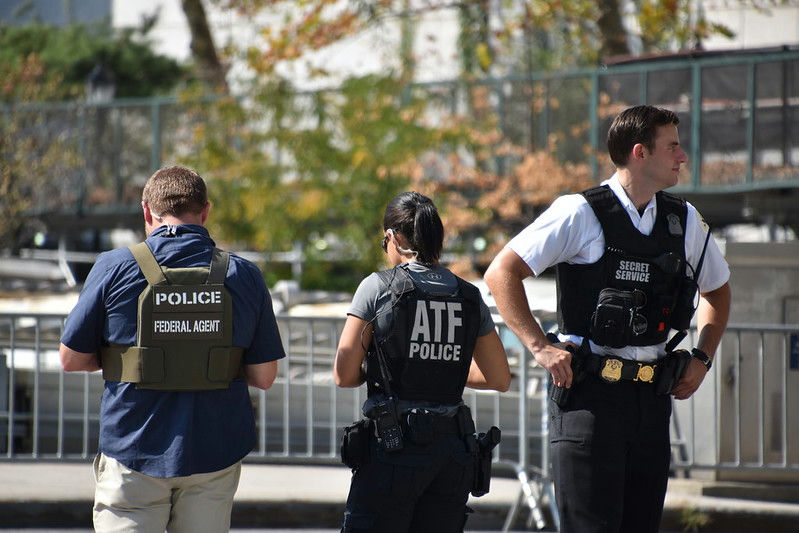In the latest eruption of senseless violence, a mass shooting tore through Bangkok’s Or Tor Kor market just as border clashes between Thailand and Cambodia left dozens dead and hundreds of thousands displaced—raising urgent questions about regional security, government competence, and the real cost of failed leadership.
Mass Shooting in Bangkok: A Nation on Edge
Thailand’s capital was rocked on July 28, 2025, when a gunman opened fire at the bustling Or Tor Kor market, killing at least six people before being neutralized by police. This shooting, already horrific on its own, comes at a time when the entire nation is reeling from a rapidly deteriorating security situation along its eastern border. The sense of lawlessness is unmistakable: in a country where government assurances of order ring hollow, ordinary citizens—shopkeepers, market-goers, families—are left to fend for themselves. The left loves to tell us that gun control and government “protection” are the answers, yet we see—again and again—that criminals and chaos slip right through the cracks. If you want to know what happens when leadership wavers and priorities get scrambled, just look at the terrified faces in Bangkok’s streets.
Authorities have yet to release a motive for the attack, but with the entire region on high alert after days of military clashes, it’s hard to miss the connection between government failure abroad and the erosion of security at home. This is precisely why so many Americans, and frankly anyone who cares about constitutional rights and sovereignty, have zero patience for bureaucrats who fail to put citizens first—whether it’s here or halfway across the world.
Deadly Border Clashes: Old Grudges, New Casualties
The carnage at Or Tor Kor is just one piece of a much larger crisis. Since July 24, the border between Thailand and Cambodia has transformed into a war zone after a dispute over ancient temple sites reignited old animosities. Both sides accuse each other of aggression: Cambodian officials claim Thai troops stormed their territory, while Thailand reports drone incursions and rocket attacks near civilian areas. What followed was an all-out exchange—artillery fire, airstrikes, and a mounting civilian toll that now stands at more than 35 dead and over 260,000 people forced from their homes.
The chaos has halted trade, shuttered markets, and left entire communities stranded with nowhere to turn. ASEAN, the UN, and even the United States—now back to projecting strength under President Trump—are scrambling to broker peace. Yet, as always, the root of the problem is clear: when governments put nationalist posturing, political survival, or appeasing international elites ahead of protecting their people, innocent families pay the price. It’s a lesson we’ve learned the hard way here at home—one the world would do well to remember.
Ceasefire Talks: Hope or Another Hollow Promise?
There was a glimmer of hope as Thai and Cambodian leaders met in Malaysia, with international observers in tow, to hammer out a ceasefire. Reports suggest a deal was struck to halt hostilities at midnight on July 28, but the situation remains as fragile as a house of cards. Both governments continue to hurl accusations, and the reality on the ground—traumatized families, burned-out villages, and soldiers on high alert—tells you everything you need to know about the “success” of diplomatic negotiations led by elites who rarely suffer the consequences of their own decisions.
https://twitter.com/BPINewsOrg/status/1949763673402097728
The Trump administration, through Secretary of State Marco Rubio, has issued strong statements demanding restraint and a return to order. Humanitarian groups are mobilizing, but with hundreds of thousands displaced and a city like Bangkok rocked by violence, it’s clear the region’s stability hangs by a thread. History shows that ceasefires, without real accountability and strong leadership, are little more than paper shields. When the dust settles, as always, everyday people are the ones left picking up the pieces while politicians and bureaucrats duck for cover.
Regional Fallout: Security, Sovereignty, and What’s at Stake
The implications of this crisis extend far beyond Southeast Asia’s borders. Regional stability is now in question, and the specter of a wider conflict looms if the ceasefire fails. Trade, tourism, and local economies are already in freefall, while the humanitarian sector braces for an even larger crisis. Nationalist rhetoric is on the rise, and both countries’ leaders face mounting pressure from restive populations who are sick and tired of empty promises and endless chaos.
🚨 Mass shooting at a food market in Bangkok
A Gunman opened fire at the Or Tor Kor food market in Bangkok
Killed at least 5 (4 security guards & 1 woman) before taking his own life
Authorities Investigating#BangkokAttack #Thailand #กราดยิง #กราดยิงอตก #OrTorKorMarket pic.twitter.com/a5mcaCbTS3
— GlobeUpdate (@Globupdate) July 28, 2025
International experts warn that unresolved territorial disputes, weak borders, and failed leadership are a recipe for disaster—not just in Bangkok or along a jungle frontier, but anywhere governments forget that their first duty is to the safety and security of their own people. It’s a message that ought to resonate here at home, where too many in the political class are still more concerned about overseas entanglements, open borders, and appeasing the so-called “international community” than about the rights and safety of American citizens. If there’s one lesson to be learned from Bangkok’s blood-soaked market and the burning villages along the Thai-Cambodian border, it’s this: put your own people first, or get ready for the consequences.
Sources:
Wikipedia: 2025 Cambodia–Thailand border conflict
UN Security Council: Urgent meeting and casualty reports
CBS News: Ceasefire negotiations and humanitarian impact

